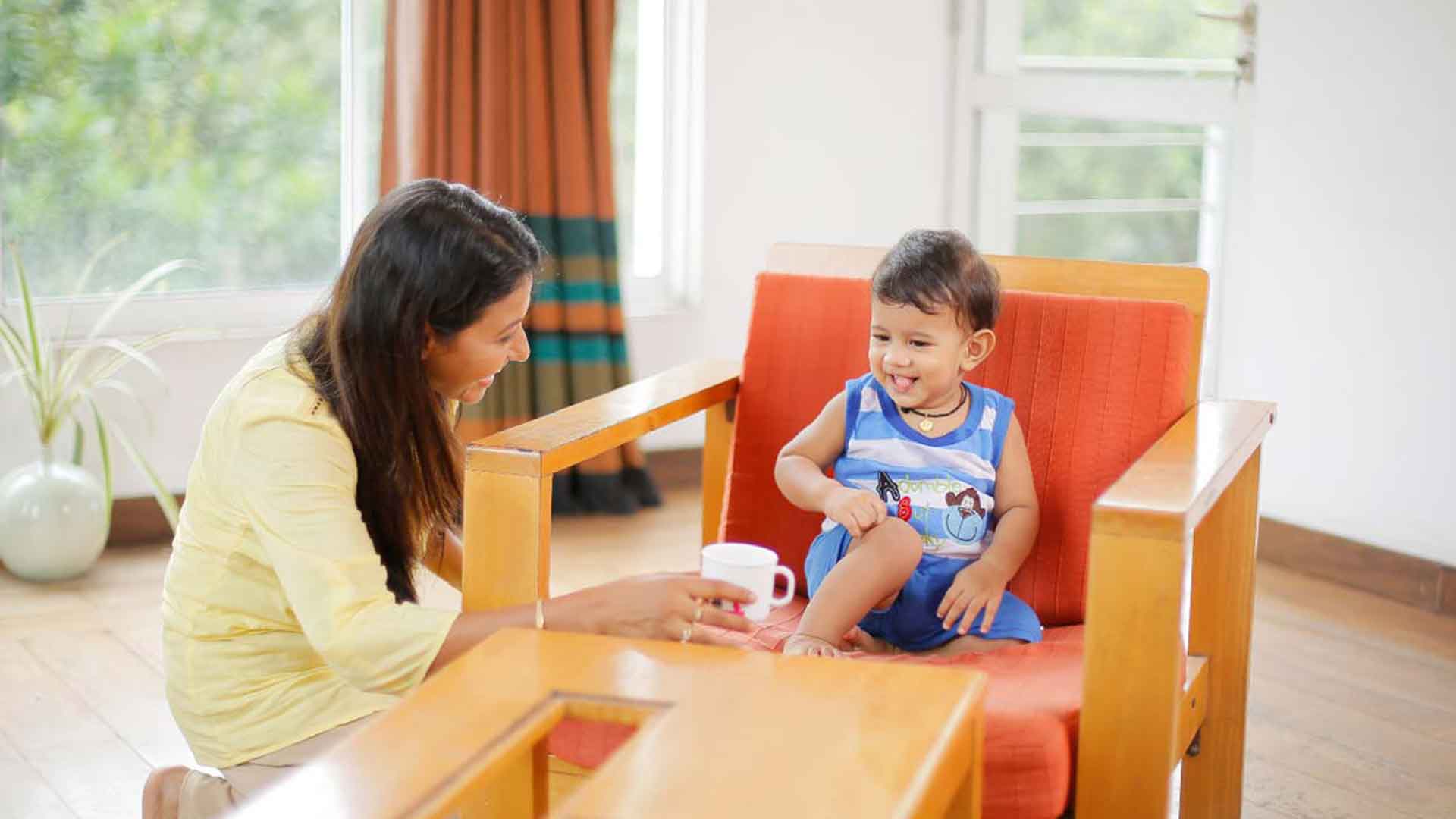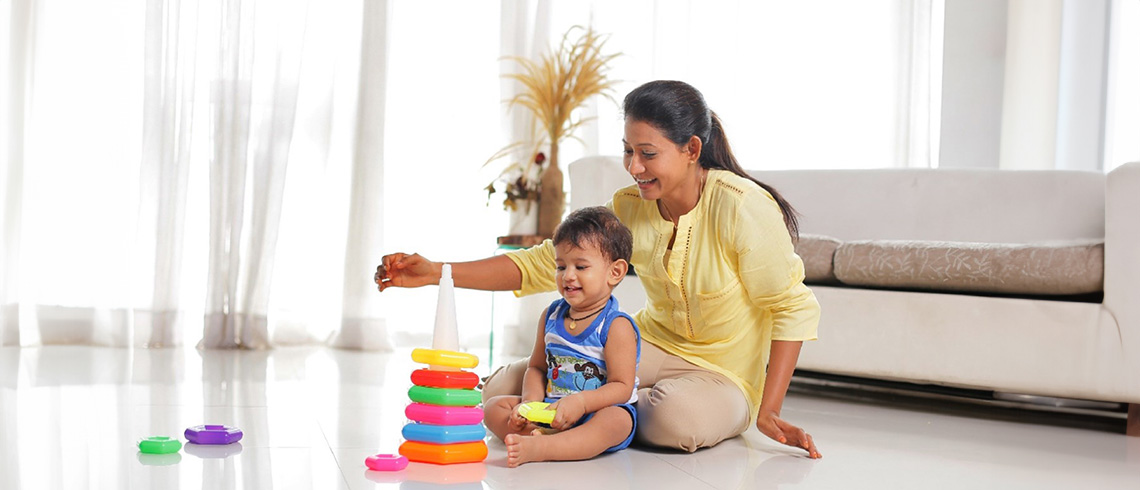























Children say the Cutest Things

Dinusha Manjarie Wickremesekera

How to help your children express themselves
As we take care of a newborn, we eagerly await the firsts. The first time a baby smiles. The first laugh. The first step and the first word. Will it be amma or thatha. Parents ask to address each other as amma and thatha or mama or dada knowing that the more the child hears it, the higher the likelihood that a particular word would be the first. In this way, parents have helped the child to say his / her first word. By listening, learning, reading children will increase their vocabulary and usage of grammar to communicate effectively with others.
Language is important because it provides children with the means to think as well as help them to identify what they are feeling and what someone else is feeling as well or to develop empathy.
Development of the ability to Communicate
|
Age
|
Expressing themselves for |
By |
|
Up to 1 year |
Need for food, security, love |
Crying, cooing, managing sounds, articulating words |
|
Up to 2 years and above |
Need for food, security, love, specific things, and people Expressing ideas to limited degree |
Use of words 1 – 2 words together By 2 years the number of words varies from 12 – 400 words |
|
Over 2 years |
Want they want, what they see, what they like etc
Increasingly express themselves detailing their experiences, ideas and feelings.
|
Rapid language learning picking up more than half of the commonly used words. Regularities in grammar but not irregularities (English Language – all children would then make predictable mistakes in grammar)
Expressing themselves The number of words they know increase to 1000s and continue to pick up words and meanings faster. They will string the words together into groups of words and then into complete sentences. |
The number of words mastered would depend on the individual child who is driven by their interest in what type of challenge she/he would like to master. Are they interested in taking on the physical challenges presented to them? In which case, they would move, pick up things faster. If they are interested in taking on the challenge of social exchanges, they would try to interact and express themselves better and thereby speak quicker. So be mindful of this individual time table when you wait for your child to start talking.
What we do know is that children who have not been spoken to don’t pick up any language skills. We also know that children will speak the language they are most used to hearing. They will also use words that they are most used to hearing and even know their meaning long before they can say the words.
Here are some things that you can do from a very early age to help children to improve their communication ability.
- Ensure that they have a diverse range of experiences, to the supermarket, to the zoo, to the park. Talk to them, explaining what they are seeing and experiencing so that they can articulate them. This also helps them to experience the world through their senses, particularly what they see, hear and touch.
- Read to them: the stories are a good way to reinforce some of the experiences that they have had. So be mindful of this when you select storybooks for them. Story help shapes what your child will say, do and think – all of this important to developing their worldview.
- You also like to build on their understanding of concepts and feelings– particularly big and small, up and down, happy and sad etc. You will do this as you describe what both of you are seeing or experiencing.
The key is to talk talk talk. Talk using simple words and actions and expressions so that your child hears and you should also ask questions, leaving enough time for them to respond. Listen to the response and verbalise what you think you have heard, even If you haven’t understood it Reduce the baby talk. Let them hear the varying intonation and expressiveness as you speak.
No matter how many words, or how motivated they are to speak, they will have an interesting perspective – so enjoy any opportunity for a conversation.
Share With:
Recommended Articles


Psychology for Parents
The understanding of psychological theories can empower parents to foster strong relationships and healthy development while nurturing the unique potentials of ...
Read More

Mental Milestones
As you speak to and play with your child, inside his / her brain, the capacity to process information, skills of perception, language learning and conceptua...
Read More

Coping with Social Anxiety during Social Distancing
For almost a year now we have been worried about catching the infectious disease Covid 19 from anyone who is within close physical proximity to us. The news...
Read More